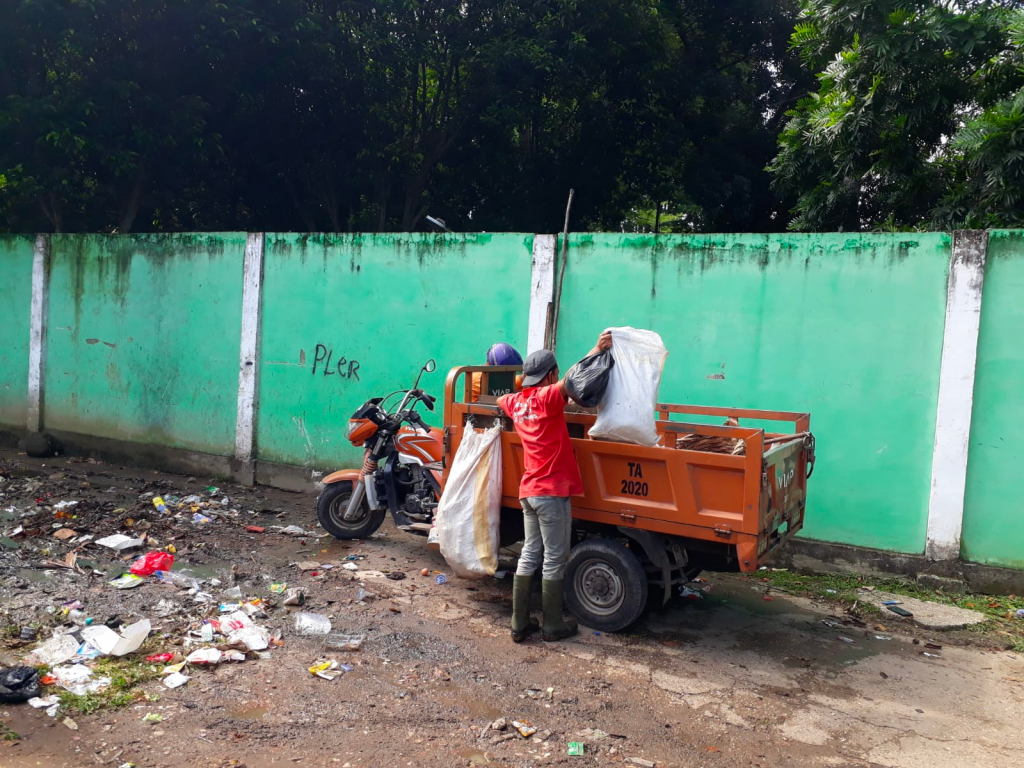Behavior change, capacity building, improved waste infrastructures, and stricter policy implementation—these are just some of the key actions that can help Iloilo City, Philippines; Jambi City, Indonesia; and Iskandar, Malaysia better address their plastic waste problem. Over 90 waste sector stakeholders across the three Southeast Asian local governments arrived at these insights during the consultation workshops conducted in each city on March, April, and July 2022, respectively. Held to discuss possible plastic waste management strategies, the workshops specifically aimed at surfacing:
(1) issues and concerns the stakeholders are experiencing in their respective waste streams,
(2) activities or initiatives that can help address the issues, and
(3) the support needed for the actions to be implemented.
The consultations were organized under the Developing Plastic Waste-free Cities program by the Alliance to End Plastic Waste (AEPW) through the implementation by the ICLEI – Local Governments for Sustainability South Asia (SAS) and Southeast Asia (SEAS) Secretariats.
Stakeholder consultation in Iloilo City, Philippines
45 representatives from Iloilo’s waste generation, collection, transport, sorting, processing, recycling, disposal, and institutional groups attended the consultation session on 9 March 2022. The stakeholders identified the need to improve citizen behavior, strengthen local government capacities, establish village-level materials recovery facilities (MRF), and build a mid-level waste-to-energy facility, among others, in order to improve the city’s waste management approach.
Currently, Iloilo City’s average per capita waste generation sits at 0.88kg/day, totaling approximately 500,000kg/day of solid waste. Of this amount, around 63% is being collected by the city, while 37% are unmanaged and either recovered through informal waste recovery or leaked into the environment. The amount of unaccounted and unmanaged plastic waste in the city is approximately 93,500kg/day. Unfortunately, Iloilo City is located next to a major marine sanctuary and features various rivers that cut through the city and into the sea. These factors, along with other environmental and health impacts, point to an urgent need to control and reduce plastic waste.
Stakeholder consultation in Jambi City, Indonesia
27 stakeholders from the Jambi Environment Department (DLH), Jambi Public Works and Housing (PUPR), Jambi Development Planning Board (BAPPEDA), waste producer groups, waste processor groups, and waste management institutions were present for the discussions conducted through the ICLEI Indonesia Office last 21 April 2022.
One of the waste management concerns identified by the stakeholders is the city’s insufficient waste collection infrastructure. The city currently has 252 temporary disposal sites where generators dump their waste. However, 90 of these are completely dilapidated. Wastes from these areas are collected up to thrice a day by the city’s solid waste collection fleet composed of just 39 dump trucks, 12 arm roll trucks, and 24 motorcycles. DLH Head Dr. H. Ardi, S.P. M.Si shared “We want to increase the fleet of garbage collectors. Until now, the entire Jambi area has not been covered in the transportation of waste.”
The DLH is planning to implement several measures to fill the waste management gaps. The department is looking into strengthening segregation at waste stations so that final processing sites could deal with already-sorted wastes. The local government also works with, guides, and trains various private and informal waste processors, including scavengers, collectors, and recyclers.
 Stakeholder consultation in Iskandar, Malaysia
Stakeholder consultation in Iskandar, Malaysia
As part of the stakeholder consultation process, 25 national, federal, and local government representatives in Iskandar, Malaysia on 13 July 2022 met and agreed upon infrastructure solutions—including three MRFs and a plastic recycling facility—that can prevent at least 160 tonnes per day of plastic wastes from leaking to the environment. These solutions were determined based on the results of a comprehensive analysis of the region’s plastic waste condition last year.
ICLEI SAS, SEAS, and Iskandar Regional Development Authority (IRDA) led by its Chief Executive YB Dato Dr. Badrul Hisham, presented the interventions to representatives of the Ministry of Housing and Local Government (KPKT), Malaysian Green Technology and Climate Change Corporation (MGTC), Solid Waste Management and Public Cleansing Corporation, and the local authorities of Johor Bahru, Iskandar Puteri, Pasir Gudang, Kulai, and Pontian. Representatives from the five local authorities recognized the positive impacts of the proposed infrastructure projects, adding that their success also depend on the stricter enforcement of waste collection policies and the availability of affordable and eco-friendly plastic alternatives.
Other action points identified during the discussions were KPKT’s promotion of the circular economy; MGTC’s integration of recovered plastic wastes into its network companies’ manufacturing processes; and ensuring that social and environmental safeguards are in place to maximize the benefits from these initiatives. IRDA and ICLEI also visited primary waste management facilities in the region to better understand their processes and ensure seamless integration of the proposed projects.
The multi-stakeholder consultation workshops conducted in each city is one of the key steps towards reducing plastic wastes at the local level. In addition to the proposed key actions, several solid waste management infrastructure projects concepts were also identified to help the cities implement the strategies and address their plastic problem.